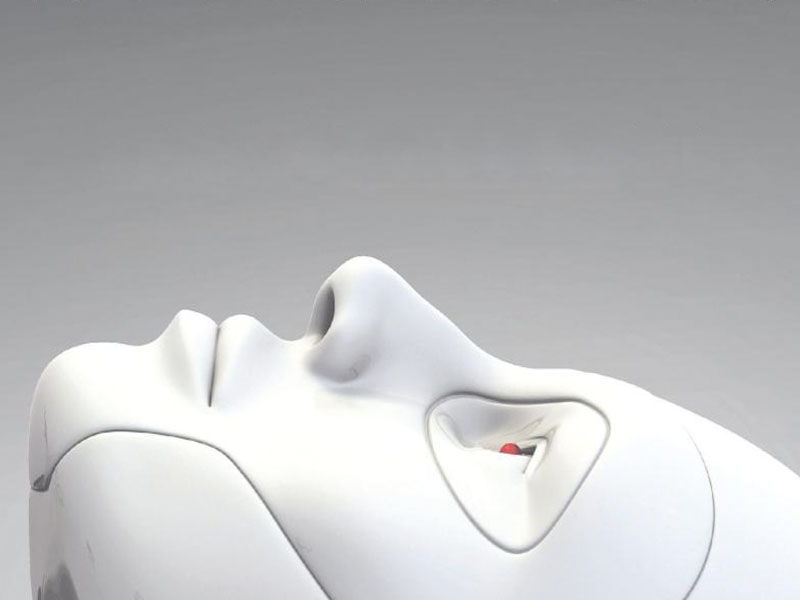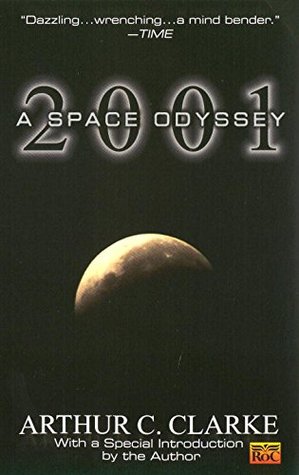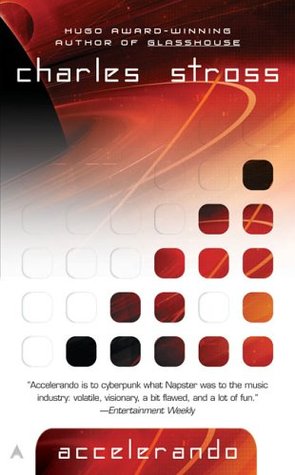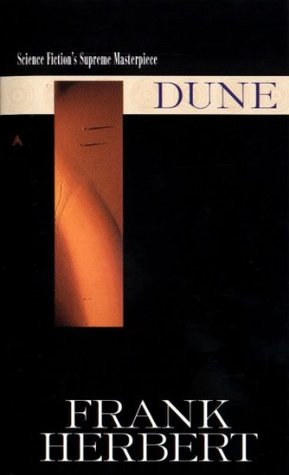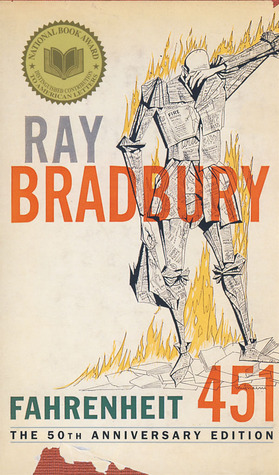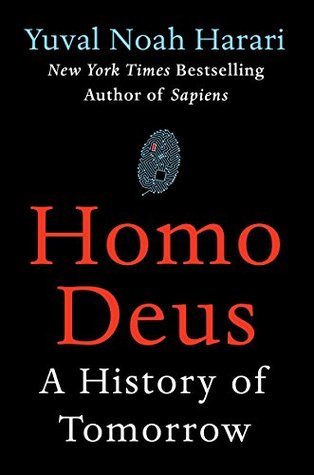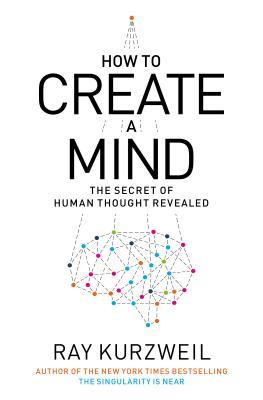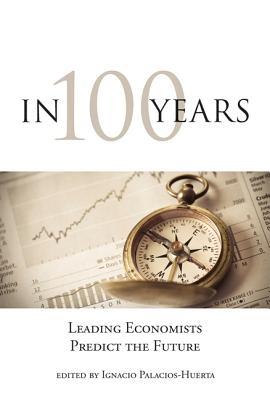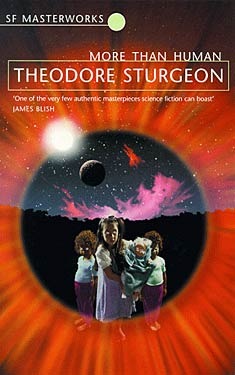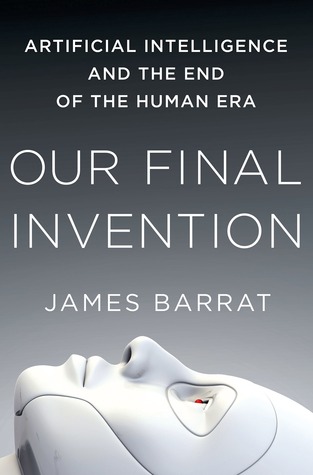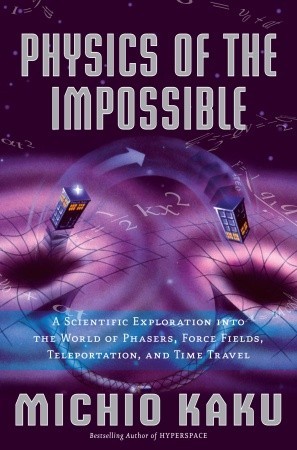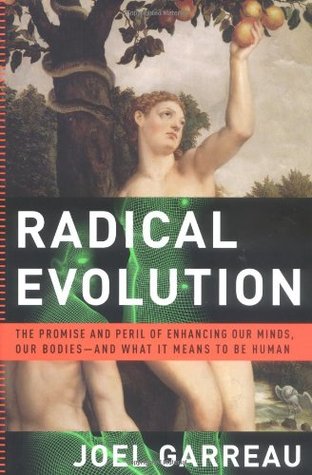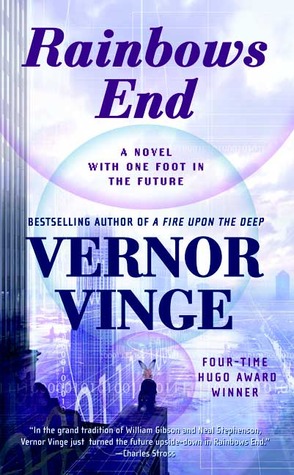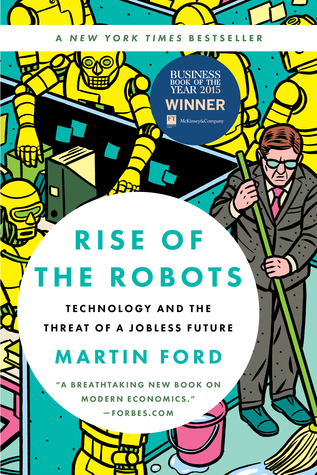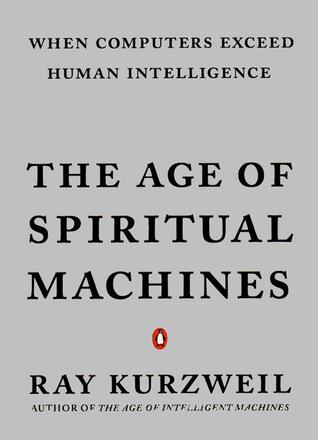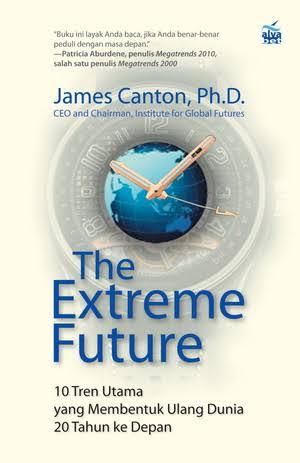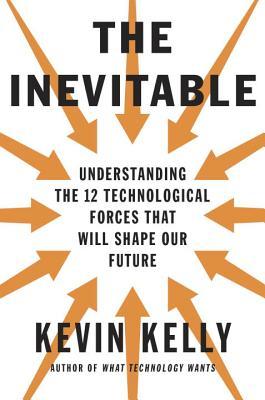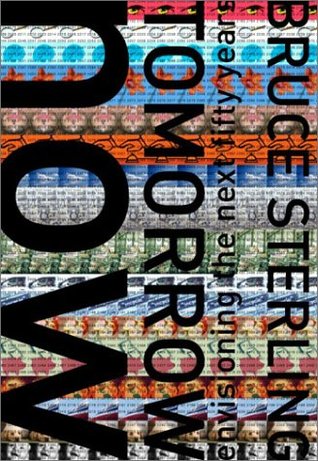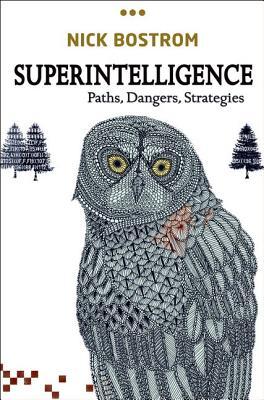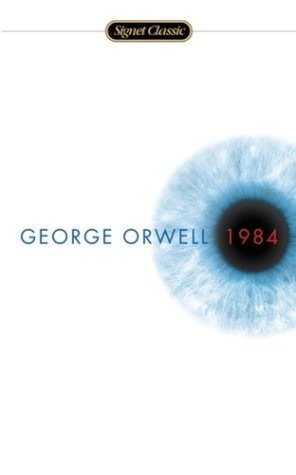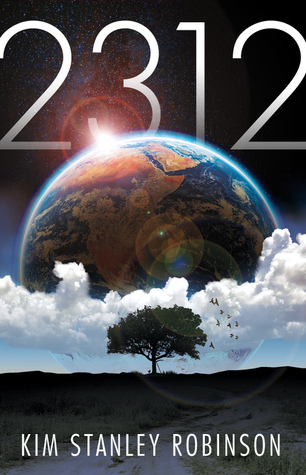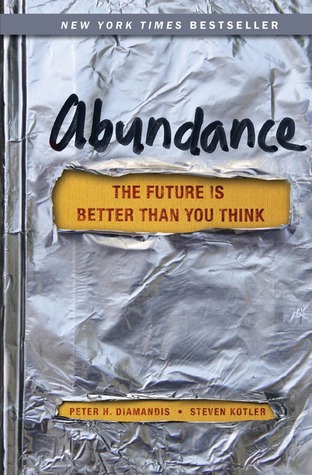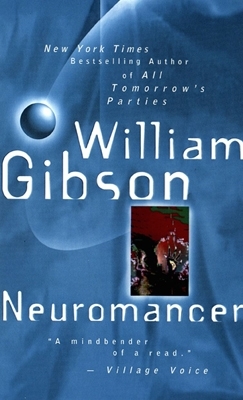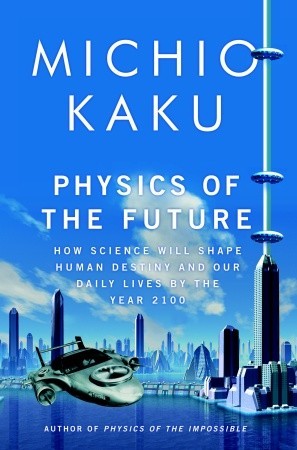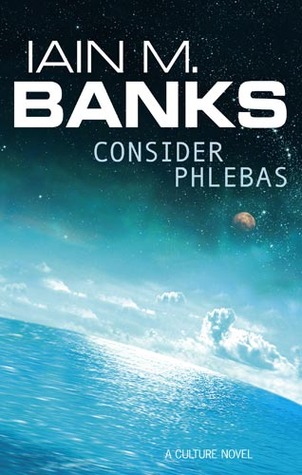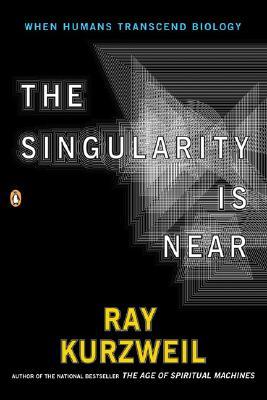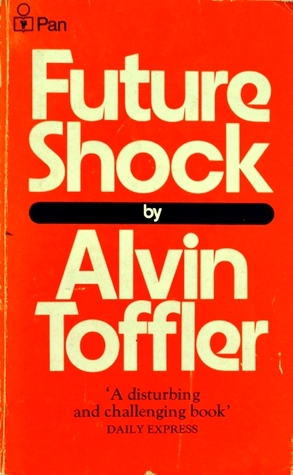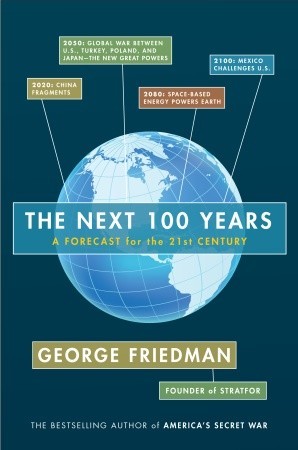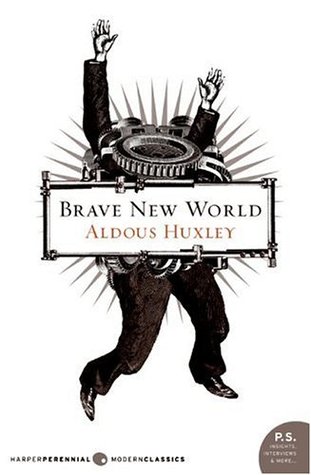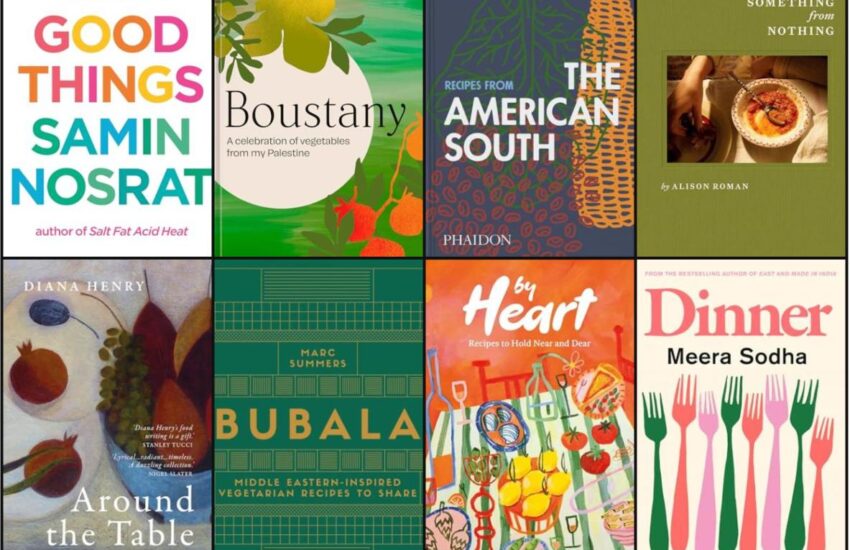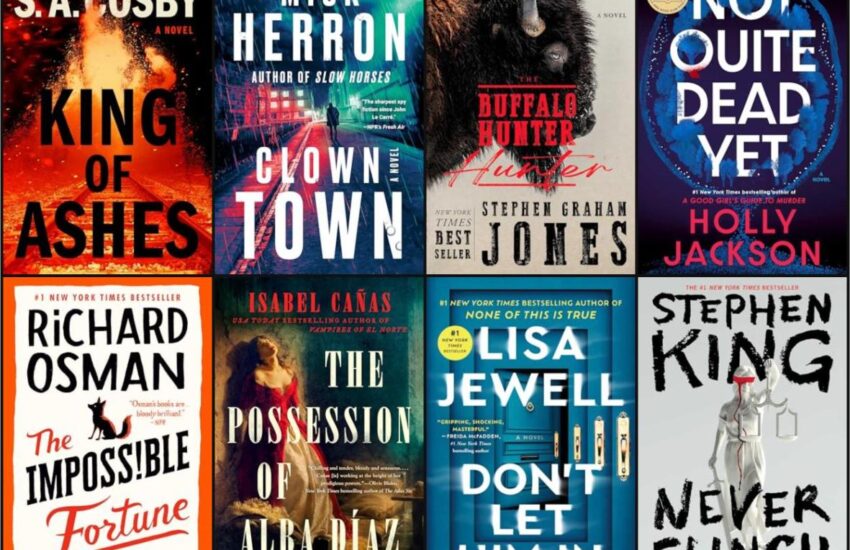The Best Futurist Books (Fiction & Nonfiction)
“What are the best Futurism Books?” We looked at 209 of the top books for Futurists (Fiction & Nonfiction), aggregating and ranking them so we could answer that very question!
Futurism and futurists are defined as; “a person who studies the future and makes predictions about it based on current trends.”
This list was made after we read Yuval Noah Harari’s Homo Deus: A Brief History of Tomorrow (coming in at #26 on this list). Given more time Homo Deus will probably start making it onto more and more Futurism lists, but since it has only been out for less than a year it was only on two that we were able to find. We won’t go over it much more here, but if it didn’t already appear on the list, we would definitely have made it an editors choice.
Interestingly, nonfiction books are in the minority on this list because science fiction authors have been futuristing it up before futurism was even a thing. The top 31 books, all appearing on 2 or more lists, are ranked below by how many lists they appear on and include images, descriptions, and links. The remaining 150+ books, as well as the articles we used, are in alphabetical order on the bottom of the page.
Happy Scrolling!
Top 31 Futurism Books
31 .) 2001: A Space Odyssey by Arthur C. Clarke
Lists It Appears On:
- Forbes
- Business Insider
“From the savannas of Africa at the dawn of mankind to the rings of Saturn as man ventures to the outer rim of our solar system, 2001: A Space Odyssey is a journey unlike any other.
This allegory about humanity’s exploration of their universe, and the universe’s reaction to humanity was the basis for director Stanley Kubrick’s immortal film, and lives on as a hallmark achievement in storytelling.”
30 .) Accelerando by Charles Stross
Lists It Appears On:
- The Best Sci Fi Books
- Goodreads 2
“The Singularity. It is the era of the posthuman. Artificial intelligences have surpassed the limits of human intellect. Biotechnological beings have rendered people all but extinct. Molecular nanotechnology runs rampant, replicating and reprogramming at will. Contact with extraterrestrial life grows more imminent with each new day.
Struggling to survive and thrive in this accelerated world are three generations of the Macx clan: Manfred, an entrepreneur dealing in intelligence amplification technology whose mind is divided between his physical environment and the Internet; his daughter, Amber, on the run from her domineering mother, seeking her fortune in the outer system as an indentured astronaut; and Sirhan, Amber’s son, who finds his destiny linked to the fate of all of humanity.For something is systematically dismantling the nine planets of the solar system. Something beyond human comprehension. Something that has no use for biological life in any form…”
29 .) Dune by Frank Herbert
Lists It Appears On:
- The Best Sci Fi Books
- Goodreads 2
“Set on the desert planet Arrakis, Dune is the story of the boy Paul Atreides, who would become the mysterious man known as Muad’Dib. He would avenge the traitorous plot against his noble family—and would bring to fruition humankind’s most ancient and unattainable dream.
A stunning blend of adventure and mysticism, environmentalism and politics, Dune won the first Nebula Award, shared the Hugo Award, and formed the basis of what it undoubtedly the grandest epic in science fiction.”
28 .) Fahrenheit 451 by Ray Bradbury
Lists It Appears On:
- Goodreads 2
- Business Insider
“Guy Montag is a fireman. In his world, where television rules and literature is on the brink of extinction, firemen start fires rather than put them out. His job is to destroy the most illegal of commodities, the printed book, along with the houses in which they are hidden.
Montag never questions the destruction and ruin his actions produce, returning each day to his bland life and wife, Mildred, who spends all day with her television “family.” But then he meets an eccentric young neighbor, Clarisse, who introduces him to a past where people didn’t live in fear and to a present where one sees the world through the ideas in books instead of the mindless chatter of television.
When Mildred attempts suicide and Clarisse suddenly disappears, Montag begins to question everything he has ever known. He starts hiding books in his home, and when his pilfering is discovered, the fireman has to run for his life.”
27 .) Galapagos by Kurt Vonnegut
Lists It Appears On:
- Futurist
- The Best Sci Fi Books
Galápagos takes the reader back one million years, to A.D. 1986. A simple vacation cruise suddenly becomes an evolutionary journey. Thanks to an apocalypse, a small group of survivors stranded on the Galápagos Islands are about to become the progenitors of a brave, new, and totally different human race. In this inimitable novel, America’s master satirist looks at our world and shows us all that is sadly, madly awry–and all that is worth saving.
26 .) Homo Deus: A Brief History of Tomorrow by Yuval Noah Harari
Lists It Appears On:
- Goodreads 2
“Over the past century humankind has managed to do the impossible and rein in famine, plague, and war. This may seem hard to accept, but, as Harari explains in his trademark style—thorough, yet riveting—famine, plague and war have been transformed from incomprehensible and uncontrollable forces of nature into manageable challenges. For the first time ever, more people die from eating too much than from eating too little; more people die from old age than from infectious diseases; and more people commit suicide than are killed by soldiers, terrorists and criminals put together. The average American is a thousand times more likely to die from binging at McDonalds than from being blown up by Al Qaeda.
What then will replace famine, plague, and war at the top of the human agenda? As the self-made gods of planet earth, what destinies will we set ourselves, and which quests will we undertake? Homo Deus explores the projects, dreams and nightmares that will shape the twenty-first century—from overcoming death to creating artificial life. It asks the fundamental questions: Where do we go from here? And how will we protect this fragile world from our own destructive powers? This is the next stage of evolution. This is Homo Deus.”
25 .) How to Create a Mind: The Secret of Human Thought Revealed by Ray Kurzweil
Lists It Appears On:
- Goodreads
- Goodreads 2
“Ray Kurzweil is arguably today’s most influential—and often controversial—futurist. In How to Create a Mind, Kurzweil presents a provocative exploration of the most important project in human-machine civilization—reverse engineering the brain to understand precisely how it works and using that knowledge to create even more intelligent machines.
Kurzweil discusses how the brain functions, how the mind emerges from the brain, and the implications of vastly increasing the powers of our intelligence in addressing the world’s problems. He thoughtfully examines emotional and moral intelligence and the origins of consciousness and envisions the radical possibilities of our merging with the intelligent technology we are creating.”
24 .) In 100 Years: Leading Economists Predict the Future by Ignacio Palacios-Huerta
Lists It Appears On:
- Boston Globe
- Business Insider
This pithy and engaging volume shows that economists may be better equipped to predict the future than science fiction writers. Economists’ ideas, based on both theory and practice, reflect their knowledge of the laws of human interactions as well as years of experimentation and reflection. Although perhaps not as screenplay-ready as a work of fiction, these economists’ predictions are ready for their close-ups. In this book, ten prominent economists — including Nobel laureates and several likely laureates — offer their ideas about the world of the twenty-second century.In scenarios that range from the optimistic to the guardedly gloomy, these thinkers consider such topics as the transformation of work and wages, the continuing increase in inequality, the economic rise of China and India, the endlessly repeating cycle of crisis and (projected) recovery, the benefits of technology, the economic consequences of political extremism, and the long-range effects of climate change.
23 .) More Than Human by Theodore Sturgeon
Lists It Appears On:
- Top Trends
- io9
There’s Lone, the simpleton who can hear other people’s thoughts and make a man blow his brains out just by looking at him. There’s Janie, who moves things without touching them, and there are the teleporting twins, who can travel ten feet or ten miles. There’s Baby, who invented an antigravity engine while still in the cradle, and Gerry, who has everything it takes to run the world except for a conscience. Separately, they are talented freaks. Together, they compose a single organism that may represent the next step in evolution, and the final chapter in the history of the human race. As the protagonists of More Than Human struggle to find out who they are and whether they are meant to help humanity or destroy it, Theodore Sturgeon explores questions of power and morality, individuality and belonging, with suspense, pathos, and a lyricism rarely seen in science fiction.
22 .) Our Final Invention: Artificial Intelligence and the End of the Human Era by James Barrat
Lists It Appears On:
- Goodreads
- Goodreads 2
“In as little as a decade, artificial intelligence could match and then surpass human intelligence. Corporations and government agencies around the world are pouring billions into achieving AI’s Holy Grail―human-level intelligence. Once AI has attained it, scientists argue, it will have survival drives much like our own. We may be forced to compete with a rival more cunning, more powerful, and more alien than we can imagine.
Through profiles of tech visionaries, industry watchdogs, and groundbreaking AI systems, James Barrat’s Our Final Invention explores the perils of the heedless pursuit of advanced AI. Until now, human intelligence has had no rival. Can we coexist with beings whose intelligence dwarfs our own? And will they allow us to?”
21 .) Physics of the Impossible: A Scientific Exploration into the World of Phasers, Force Fields, Teleportation, and Time Travel by Michio Kaku
Lists It Appears On:
- Goodreads
- Goodreads 2
Teleportation, time machines, force fields, and interstellar space ships—the stuff of science fiction or potentially attainable future technologies? Inspired by the fantastic worlds of Star Trek, Star Wars, and Back to the Future, renowned theoretical physicist and bestselling author Michio Kaku takes an informed, serious, and often surprising look at what our current understanding of the universe’s physical laws may permit in the near and distant future.Entertaining, informative, and imaginative, Physics of the Impossible probes the very limits of human ingenuity and scientific possibility.
20 .) Radical Evolution: The Promise and Peril of Enhancing Our Bodies, Our Minds — and What It Means to be Human by Joel Garreau
Lists It Appears On:
- io9
- Goodreads 2
Taking us behind the scenes with today’s foremost researchers and pioneers, bestselling author Joel Garreau shows that we are at a turning point in history. At this moment we are engineering the next stage of human evolution. Through advances in genetic, robotic, information, and nanotechnologies, we are altering our minds, our memories, our metabolisms, our personalities, our progeny–and perhaps our very souls. Radical Evolution reveals that the powers of our comic-book superheroes already exist, or are in development in hospitals, labs, and research facilities around the country–from the revved-up reflexes and speed of Spider-Man and Superman, to the enhanced mental acuity and memory capabilities of an advanced species. Over the next fifteen years, Garreau makes clear in this New York Times Book Club premiere selection, these enhancements will become part of our everyday lives. Where will they lead us? To heaven–where technology’s promise to make us smarter, vanquish illness, and extend our lives is the answer to our prayers? Or, as some argue, to hell–where unrestrained technology brings about the ultimate destruction of our species?
19 .) Rainbows End by Vernor Vinge
Lists It Appears On:
- NPR
- Goodreads 2
“Robert Gu is a recovering Alzheimer’s patient. The world that he remembers was much as we know it today. Now, as he regains his faculties through a cure developed during the years of his near-fatal decline, he discovers that the world has changed and so has his place in it. He was a world-renowned poet. Now he is seventy-five years old, though by a medical miracle he looks much younger, and he’s starting over, for the first time unsure of his poetic gifts. Living with his son’s family, he has no choice but to learn how to cope with a new information age in which the virtual and the real are a seamless continuum, layers of reality built on digital views seen by a single person or millions, depending on your choice. But the consensus reality of the digital world is available only if, like his thirteen-year-old granddaughter Miri, you know how to wear your wireless access―through nodes designed into smart clothes―and to see the digital context―through smart contact lenses.
With knowledge comes risk. When Robert begins to re-train at Fairmont High, learning with other older people what is second nature to Miri and other teens at school, he unwittingly becomes part of a wide-ranging conspiracy to use technology as a tool for world domination.”
18 .) Rise of the Robots: Technology and the Threat of a Jobless Future by Martin Ford
Lists It Appears On:
- Goodreads
- Goodreads 2
What are the jobs of the future? How many will there be? And who will have them? As technology continues to accelerate and machines begin taking care of themselves, fewer people will be necessary. Artificial intelligence is already well on its way to making “good jobs” obsolete: many paralegals, journalists, office workers, and even computer programmers are poised to be replaced by robots and smart software. As progress continues, blue and white collar jobs alike will evaporate, squeezing working- and middle-class families ever further. At the same time, households are under assault from exploding costs, especially from the two major industries—education and health care—that, so far, have not been transformed by information technology. The result could well be massive unemployment and inequality as well as the implosion of the consumer economy itself. The past solutions to technological disruption, especially more training and education, aren’t going to work. We must decide, now, whether the future will see broad-based prosperity or catastrophic levels of inequality and economic insecurity. Rise of the Robots is essential reading to understand what accelerating technology means for our economic prospects—not to mention those of our children—as well as for society as a whole.
17 .) The Age of Spiritual Machines: When Computers Exceed Human Intelligence by Ray Kurzweil
Lists It Appears On:
- The Booklist Reader
- Goodreads 2
Ray Kurzweil is the inventor of the most innovative and compelling technology of our era, an international authority on artificial intelligence, and one of our greatest living visionaries. Now he offers a framework for envisioning the twenty-first century–an age in which the marriage of human sensitivity and artificial intelligence fundamentally alters and improves the way we live. Kurzweil’s prophetic blueprint for the future takes us through the advances that inexorably result in computers exceeding the memory capacity and computational ability of the human brain by the year 2020 (with human-level capabilities not far behind); in relationships with automated personalities who will be our teachers, companions, and lovers; and in information fed straight into our brains along direct neural pathways. Optimistic and challenging, thought-provoking and engaging, The Age of Spiritual Machines is the ultimate guide on our road into the next century.
16 .) The Extreme Future: The Top Trends That Will Reshape the World in the Next 20 Years by James Canton
Lists It Appears On:
- Boston Globe
- Business Insider
“An advisor to three presidents spanning over thirty years, Dr. James Canton identifies probable outcomes and future trends in business, technology, environment, terrorism, population, and medicine to help companies and individuals prepare for the coming complex and volatile global changes, including:
-How climate change and energy trends will reshape the planet
-How astounding medicine trends will enhance people’s lives
-How the rise of China will bring on a new global power struggleIn the tradition of Future Shock, Megatrends, and The Tipping Point, Extreme Future is the essential forecasting handbook for navigating the twenty-first century.”
15 .) The Foundation Trilogy by Isaac Asimov
Lists It Appears On:
- The Best Sci Fi Books
- Forbes
“For twelve thousand years the Galactic Empire has ruled supreme. Now it is dying. But only Hari Sheldon, creator of the revolutionary science of psychohistory, can see into the future–to a dark age of ignorance, barbarism, and warfare that will last thirty thousand years. To preserve knowledge and save mankind, Seldon gathers the best minds in the Empire–both scientists and scholars–and brings them to a bleak planet at the edge of the Galaxy to serve as a beacon of hope for a fututre generations. He calls his sanctuary the Foundation.
But soon the fledgling Foundation finds itself at the mercy of corrupt warlords rising in the wake of the receding Empire. Mankind’s last best hope is faced with an agonizing choice: submit to the barbarians and be overrun–or fight them and be destroyed.”
14 .) The Inevitable: Understanding the 12 Technological Forces That Will Shape Our Future by Kevin Kelly
Lists It Appears On:
- Goodreads 2
Much of what will happen in the next thirty years is inevitable, driven by technological trends that are already in motion. In this fascinating, provocative new book, Kevin Kelly provides an optimistic road map for the future, showing how the coming changes in our lives—from virtual reality in the home to an on-demand economy to artificial intelligence embedded in everything we manufacture—can be understood as the result of a few long-term, accelerating forces. Kelly both describes these deep trends—interacting, cognifying, flowing, screening, accessing, sharing, filtering, remixing, tracking, and questioning—and demonstrates how they overlap and are codependent on one another. These larger forces will completely revolutionize the way we buy, work, learn, and communicate with each other. By understanding and embracing them, says Kelly, it will be easier for us to remain on top of the coming wave of changes and to arrange our day-to-day relationships with technology in ways that bring forth maximum benefits. Kelly’s bright, hopeful book will be indispensable to anyone who seeks guidance on where their business, industry, or life is heading—what to invent, where to work, in what to invest, how to better reach customers, and what to begin to put into place—as this new world emerges.
13 .) The Second Machine Age: Work, Progress, and Prosperity in a Time of Brilliant Technologies by Erik Brynjolfsson
Lists It Appears On:
- Goodreads
- Goodreads 2
“In recent years, Google’s autonomous cars have logged thousands of miles on American highways and IBM’s Watson trounced the best human Jeopardy! players. Digital technologies―with hardware, software, and networks at their core―will in the near future diagnose diseases more accurately than doctors can, apply enormous data sets to transform retailing, and accomplish many tasks once considered uniquely human.
In The Second Machine Age MIT’s Erik Brynjolfsson and Andrew McAfee―two thinkers at the forefront of their field―reveal the forces driving the reinvention of our lives and our economy. As the full impact of digital technologies is felt, we will realize immense bounty in the form of dazzling personal technology, advanced infrastructure, and near-boundless access to the cultural items that enrich our lives.Amid this bounty will also be wrenching change. Professions of all kinds―from lawyers to truck drivers―will be forever upended. Companies will be forced to transform or die. Recent economic indicators reflect this shift: fewer people are working, and wages are falling even as productivity and profits soar.”
12 .) Tomorrow Now: Envisioning the Next Fifty Years by Bruce Sterling
Lists It Appears On:
- Futurist
- Goodreads 2
“Visionary author Bruce Sterling views the future like no other writer. In his first nonfiction book since his classic The Hacker Crackdown, Sterling describes the world our children might be living in over the next fifty years and what to expect next in culture, geopolitics, and business.
Time calls Bruce Sterling “one of America’s best-known science fiction writers and perhaps the sharpest observer of our media-choked culture working today in any genre.” Tomorrow Now is, as Sterling wryly describes it, “an ambitious, sprawling effort in thundering futurist punditry, in the pulsing vein of the futurists I’ve read and admired over the years: H. G. Wells, Arthur C. Clarke, and Alvin Toffler; Lewis Mumford, Reyner Banham, Peter Drucker, and Michael Dertouzos. This book asks the future two questions: What does it mean? and How does it feel? ”
Taking a cue from one of William Shakespeare’s greatest soliloquies, Sterling devotes one chapter to each of the seven stages of humanity: birth, school, love, war, politics, business, and old age. As our children progress through Sterling’s Shakespearean life cycle, they will encounter new products; new weapons; new crimes; new moral conundrums, such as cloning and genetic alteration; and new political movements, which will augur the way wars of the future will be fought.
“
11 .) Superintelligence: Paths, Dangers, Strategies by Nick Bostrom
Lists It Appears On:
- Goodreads
- Goodreads 2
“The human brain has some capabilities that the brains of other animals lack. It is to these distinctive capabilities that our species owes its dominant position. Other animals have stronger muscles or sharper claws, but we have cleverer brains.
If machine brains one day come to surpass human brains in general intelligence, then this new superintelligence could become very powerful. As the fate of the gorillas now depends more on us humans than on the gorillas themselves, so the fate of our species then would come to depend on the actions of the machine superintelligence.
But we have one advantage: we get to make the first move. Will it be possible to construct a seed AI or otherwise to engineer initial conditions so as to make an intelligence explosion survivable? How could one achieve a controlled detonation?
To get closer to an answer to this question, we must make our way through a fascinating landscape of topics and considerations. Read the book and learn about oracles, genies, singletons; about boxing methods, tripwires, and mind crime; about humanity’s cosmic endowment and differential technological development; indirect normativity, instrumental convergence, whole brain emulation and technology couplings; Malthusian economics and dystopian evolution; artificial intelligence, and biological cognitive enhancement, and collective intelligence. “
10 .) 1984 by George Orwell
Lists It Appears On:
- Forbes
- Goodreads 2
- Business Insider
“In 1984, London is a grim city in the totalitarian state of Oceania where Big Brother is always watching you and the Thought Police can practically read your mind. Winston Smith is a man in grave danger for the simple reason that his memory still functions. Drawn into a forbidden love affair, Winston finds the courage to join a secret revolutionary organization called The Brotherhood, dedicated to the destruction of the Party. Together with his beloved Julia, he hazards his life in a deadly match against the powers that be.
Lionel Trilling said of Orwell’s masterpiece “1984 is a profound, terrifying, and wholly fascinating book. It is a fantasy of the political future, and like any such fantasy, serves its author as a magnifying device for an examination of the present.” Though the year 1984 now exists in the past, Orwell’s novel remains an urgent call for the individual willing to speak truth to power.”
9 .) 2312 by Kim Stanley Robinson
Lists It Appears On:
- The Best Sci Fi Books
- Futurist
- io9
“The year is 2312. Scientific and technological advances have opened gateways to an extraordinary future. Earth is no longer humanity’s only home; new habitats have been created throughout the solar system on moons, planets, and in between. But in this year, 2312, a sequence of events will force humanity to confront its past, its present, and its future.
The first event takes place on Mercury, on the city of Terminator, itself a miracle of engineering on an unprecedented scale. It is an unexpected death, but one that might have been foreseen. For Swan Er Hong, it is an event that will change her life. Swan was once a woman who designed worlds. Now she will be led into a plot to destroy them.”
8 .) Abundance: The Future Is Better Than You Think by Peter Diamandis and Steven Kotler
Lists It Appears On:
- Futurist
- Goodreads 2
- Boston Globe
“Since the dawn of humanity, a privileged few have lived in stark contrast to the hardscrabble majority. Conventional wisdom says this gap cannot be closed. But it is closing—fast.
In Abundance, space entrepreneur turned innovation pioneer Peter H. Diamandis and award-winning science writer Steven Kotler document how progress in artificial intelligence, robotics, digital manufacturing synthetic biology, and other exponentially growing technologies will enable us to make greater gains in the next two decades than we have in the previous 200 years. We will soon have the ability to meet and exceed the basic needs of every person on the planet. Abundance for all is within our grasp.”
7 .) Neuromancer by William Gibson
Lists It Appears On:
- Hinesight
- Forbes
- Goodreads 2
“The Matrix is a world within the world, a global consensus- hallucination, the representation of every byte of data in cyberspace…
Case had been the sharpest data-thief in the business, until vengeful former employees crippled his nervous system. But now a new and very mysterious employer recruits him for a last-chance run. The target: an unthinkably powerful artificial intelligence orbiting Earth in service of the sinister Tessier-Ashpool business clan. With a dead man riding shotgun and Molly, mirror-eyed street-samurai, to watch his back, Case embarks on an adventure that ups the ante on an entire genre of fiction.”
6 .) Physics of the Future: How Science Will Shape Human Destiny and Our Daily Lives by the Year 2100 by Michio Kaku
Lists It Appears On:
- Goodreads 2
- Boston Globe
- Business Insider
“Space elevators. Internet-enabled contact lenses. Cars that fly by floating on magnetic fields. This is the stuff of science fiction—it’s also daily life in the year 2100.
Renowned theoretical physicist Michio Kaku details the developments in computer technology, artificial intelligence, medicine, space travel, and more, that are poised to happen over the next hundred years. He also considers how these inventions will affect the world economy, addressing the key questions: Who will have jobs? Which nations will prosper? Kaku interviews three hundred of the world’s top scientists—working in their labs on astonishing prototypes. He also takes into account the rigorous scientific principles that regulate how quickly, how safely, and how far technologies can advance. In Physics of the Future, Kaku forecasts a century of earthshaking advances in technology that could make even the last centuries’ leaps and bounds seem insignificant.”
5 .) The Culture Series by Iain M. Banks
Lists It Appears On:
- Goodreads 2
- io9
- The Best Sci Fi Books
“The war raged across the galaxy. Billions had died, billions more were doomed. Moons, planets, the very stars themselves, faced destruction, cold-blooded, brutal, and worse, random. The Idirans fought for their Faith; the Culture for its moral right to exist. Principles were at stake. There could be no surrender.
Within the cosmic conflict, an individual crusade. Deep within a fabled labyrinth on a barren world, a Planet of the Dead proscribed to mortals, lay a fugitive Mind. Both the Culture and the Idirans sought it. It was the fate of Horza, the Changer, and his motley crew of unpredictable mercenaries, human and machine, actually to find it, and with it their own destruction.”
4 .) The Singularity is Near: When Humans Transcend Biology by Ray Kurzweil
Lists It Appears On:
- io9
- Hinesight
- Goodreads 2
For over three decades, Ray Kurzweil has been one of the most respected and provocative advocates of the role of technology in our future. In his classic The Age of Spiritual Machines, he argued that computers would soon rival the full range of human intelligence at its best. Now he examines the next step in this inexorable evolutionary process: the union of human and machine, in which the knowledge and skills embedded in our brains will be combined with the vastly greater capacity, speed, and knowledge-sharing ability of our creations.
3 .) Future Shock by Alvin Toffler
Lists It Appears On:
- Top Trends
- Hinesight
- Goodreads 2
- io9
Examines the effects of rapid industrial and technological changes upon the individual, the family, and society.
2 .) The Next 100 Years: A Forecast for the 21st Century by George Friedman
Lists It Appears On:
- Top Trends
- Goodreads
- Goodreads 2
- Boston Globe
In his thought-provoking new book, George Friedman, founder of STRATFOR—the preeminent private intelligence and forecasting firm—focuses on what he knows best, the future. Positing that civilization is at the dawn of a new era, he offers a lucid, highly readable forecast of the changes we can expect around the world during the twenty-first century all based on his own thorough analysis and research. For example, The U.S.-Jihadist war will be replaced by a new cold war with Russia; China’s role as a world power will diminish; Mexico will become an important force on the geopolitical stage; and new technologies and cultural trends will radically alter the way we live (and fight wars). Riveting reading from first to last, The Next 100 Years is a fascinating exploration of what the future holds for all of us.
1 .) Brave New World by Aldous Huxley
Lists It Appears On:
- The Best Sci Fi Books
- Hinesight
- Forbes
- Goodreads 2
- Business Insider
Aldous Huxley’s profoundly important classic of world literature, Brave New World is a searching vision of an unequal, technologically-advanced future where humans are genetically bred, socially indoctrinated, and pharmaceutically anesthetized to passively uphold an authoritarian ruling order–all at the cost of our freedom, full humanity, and perhaps also our souls.
The Additional Best Futurist Books
| # | Book | Author | Lists |
| (Books Appear On 1 List Each) | |||
| 32 | 2030 | Albert Brooks | Futurist |
| 33 | 100 Plus: How the Coming Age of Longevity Will Change Everything, From Careers and Relationships to Family and Faith | Sonia Arrison | io9 2 |
| 34 | 2030: Technology That Will Change The World | Rutger van Santen | Goodreads |
| 35 | A Field Guide to Lies: Critical Thinking in the Information Age | Daniel J. Levitin | Inverse Entertainment |
| 36 | A Fire Upon the Deep | Vernor Vinge | The Best Sci Fi Books |
| 37 | A More Beautiful Question: The Power of Inquiry to Spark Breakthrough ideas | Warren Berger | Jack Uldrich |
| 38 | A Serpent’s Tooth and The Longmire series | Craig Johnson | Futurist |
| 39 | A Short History of the Future | W. Warren Wagar | Forbes |
| 40 | A Stranger in a Strange Land | Robert Heinlein | Business Insider |
| 41 | After Man: A Zoology of the Future | Dougal Dixon | Forbes |
| 42 | Alone Together: Why We Expect More from Technology and Less from Each Other | Sherry Turkle | Goodreads |
| 43 | Amped | Daniel Wilson | io9 |
| 44 | An Incomplete Guide to the Future | Willis Harman | Hinesight |
| 45 | An Introductory Overview of ITIL V3 | Alison Cartlidge | Goodreads |
| 46 | Art of the Start | Guy Kawasaki | Futurist |
| 47 | Artificial Superintelligence: A Futuristic Approach | Roman V. Yampolskiy | Goodreads |
| 48 | As the Future Catches You: How Genomics & Other Forces Are Changing Your Life, Work, Health & Wealth | Juan Enriquez | Goodreads 2 |
| 49 | Avogadro Corp (Singularity #1) | William Hertling | Goodreads |
| 50 | Beyond Earth: Our Path to a New Home in the Planets | Charles Wohlforth and Amanda R. Hendrix, Ph.D. | Inverse Entertainment |
| 51 | Biggest Wakeup Call in History | Richard Slaughter | Hinesight |
| 52 | Black Swan | Bruce Sterling | Futurist |
| 53 | Blindsight | Peter Watts | The Best Sci Fi Books |
| 54 | Blowout | Byron Dorgan and David Hagberg | Futurist |
| 55 | Bold: How to Go Big, Create Wealth and Impact the World | Peter H. Diamandis | Goodreads 2 |
| 56 | Childhood’s End | Arthur C. Clarke | The Best Sci Fi Books |
| 57 | Children of the New World: Stories | Alexander Weinstein | Inverse Entertainment |
| 58 | Citizen Cyborg | James Hughes | io9 |
| 59 | Class A Baseball in the Middle of Everywhere | Lucas Mann | Futurist |
| 60 | Collapse | Jared Diamond | io9 |
| 61 | Dennis Meadows | Donella Meadows | Hinesight |
| 62 | Elon Musk: Inventing the Future | Ashlee Vance | Goodreads 2 |
| 63 | Ending Aging: The Rejuvenation Breakthroughs That Could Reverse Human Aging in Our Lifetime | Aubrey de Grey | Goodreads 2 |
| 64 | Engines of Creation: The Coming Era of Nanotechnology | K. Eric Drexler | Goodreads 2 |
| 65 | Envisioning the Next 50 Years | Bruce Sterling | Top Trends |
| 66 | EVEolution | Faith Popcorn | The Booklist Reader |
| 67 | Evolution’s Arrow | John Stewart | io9 |
| 68 | Existence | David Brin | Futurist |
| 69 | Exponential Organizations: Why New Organizations Are Ten Times Better, Faster, and Cheaper Than Yours (And What To Do About It) | Salim Ismail | Jack Uldrich |
| 70 | Exurbia: A Novel About Caterpillars | Alex Mckechnie | Goodreads 2 |
| 71 | Fantastic Voyage: Live Long Enough to Live Forever | Ray Kurzweil | Goodreads 2 |
| 72 | Fast Forward | William Antholis and Strobe Talbott | Futurist |
| 73 | Faster | James Gleick | Top Trends |
| 74 | Footprints of the Future | Richard Neville | Top Trends |
| 75 | Foundations of Futures Studies: Human Science for a New Era: History | Wendell Bell | Hinesight |
| 76 | Frankenstein, Or, the Modern Prometheus | Mary Wollstonecraft Shelley | NPR |
| 77 | Frankenstein’s Cat: Cuddling Up to Biotech’s Brave New Beasts | Emily Anthes | io9 2 |
| 78 | Future Babble: Why Pundits Are Hedgehogs and Foxes Know Best | Boston Globe | |
| 79 | Future Evolution | Peter Ward | io9 |
| 80 | Future Files: A Brief History of the Next 50 Years | Richard Watson | Goodreads |
| 81 | Future Hype | Bob Seidensticker | Top Trends |
| 82 | Future Perfect | Robyn Williams | Top Trends |
| 83 | Futurewise | Patrick Dixon | Top Trends |
| 84 | Futuring: The Exploration of the Future | Ed Cornish | Hinesight |
| 85 | Galileo’s Dream | Kim Stanley Robinson | Futurist |
| 86 | Hacking the Earth: Understanding the Consequences of Geoengineering | Jamais Cascio | io9 |
| 87 | Halting State | Charles Stross | NPR |
| 88 | Heavy Weather | Bruce Sterling | Hinesight |
| 89 | Hopes and Prospects | Noam Chomsky | Futurist |
| 90 | Hyperion | Dan Simmons | The Best Sci Fi Books |
| 91 | I Have No Mouth and I Must Scream | Harlan Ellison | The Best Sci Fi Books |
| 92 | In Our Own Image: Artificial intelligence, fear, love and the future of mankind | George Zarkadakis | Goodreads |
| 93 | In the Garden of the Beasts | Erik Larson | Futurist |
| 94 | Industries of the Future | Alec Ross | |
| 95 | Infinite Jest | David Foster Wallace | Forbes |
| 96 | Infinite Progress | Byron Reese | Futurist |
| 97 | Last Days of the Incas | Kim MacQuarrie | Futurist |
| 98 | Lilith’s Brood and the Patternist series | Octavia Butler | io9 |
| 99 | Little Brother | Cory Doctorow | NPR |
| 100 | Looking Backward: 2000-1887 | Edward Bellamy | Hinesight |
| 101 | Lord of Mountains | S.M Stirling | Futurist |
| 102 | Manifold: Time | Stephen Baxter | The Best Sci Fi Books |
| 103 | Mankind Beyond Earth: The History, Science, and Future of Human Space Exploration | Claude A. Piantadosi | Goodreads |
| 104 | Megachange: The World in 2050 | Daniel Franklin | Goodreads |
| 105 | Neptune’s Brood | Charles Stross | The Best Sci Fi Books |
| 106 | New Mega Trends: Implications for our Future Lives | Sarwant Singh | Goodreads |
| 107 | Next Nature: Nature Changes Along with Us | Koert van Mensvoort and Hendrik Jan Grievink | io9 |
| 108 | Nexus | Ramez Naam | Futurist |
| 109 | Non Obvious: How to Think Differently, Curate Ideas & Predict the Future | Rohit Bhargava | Jack Uldrich |
| 110 | Nova | Samuel R. Delany | The Best Sci Fi Books |
| 111 | Old Man’s War | John Scalzi | The Best Sci Fi Books |
| 112 | Open: How We’ll Work Live and Learn In The Future | David Price | Goodreads |
| 113 | Our Accelerating Future: How Superintelligence, Nanotechnology, and Transhumanism Will Transform the Planet | Michael M. Anissimov | Goodreads |
| 114 | Out of Control: The New Biology of Machines, Social Systems, and the Economic World | Kevin Kelly | Goodreads 2 |
| 115 | Pandora’s Star | Peter F. Hamilton | The Best Sci Fi Books |
| 116 | Planetary Citizenship | Hazel Henderson | The Booklist Reader |
| 117 | Race Against The Machine: How the Digital Revolution is Accelerating Innovation, Driving Productivity, and Irreversibly Transforming Employment and the Economy | Erik Brynjolfsson | Goodreads 2 |
| 118 | Ready Player One | Ernest Cline | Goodreads 2 |
| 119 | Red Mars | Kim Stanley Robinson | Hinesight |
| 120 | Regenesis: How Synthetic Biology Will Reinvent Nature and Ourselves | George M. Church | Goodreads 2 |
| 121 | Revelation Space | Alastair Reynolds | The Best Sci Fi Books |
| 122 | Ringworld | Larry Niven | The Best Sci Fi Books |
| 123 | Robot Novels/the Caves of Steel/the Naked Sun/the Robots of Dawn | Isaac Asimov | NPR |
| 124 | Salt, Sugar, Fat | Michael Moss | Futurist |
| 125 | Scenario Planning | Thomas Chermack | Futurist |
| 126 | Seed to Harvest | Octavia E. Butler | The Best Sci Fi Books |
| 127 | Silent Spring | Rachel Carson | Top Trends |
| 128 | Simians, Cyborgs and Women | Donna Haraway | io9 |
| 129 | Singularity Rising: Surviving and Thriving in a Smarter, Richer, and More Dangerous World | James D. Miller | Goodreads |
| 130 | Slan | A. E. van Vogt | io9 |
| 131 | Smarter Than Us: The Rise of Machine Intelligence | Stuart Armstrong | Goodreads |
| 132 | Smarter Than You Think: How Technology Is Changing Our Minds for the Better | Clive Thompson | Goodreads |
| 133 | Snow Crash | Neal Stephenson | Goodreads 2 |
| 134 | Steve Jobs: The Unauthorized Autobiography | J.T. Owens | Goodreads |
| 135 | Storms of My Grandchildren | James Hansen | Futurist |
| 136 | Superforecasting: The Art and Science of Prediction | Philip E. Tetlock and Dan Gardner | Jack Uldrich |
| 137 | Tales of the Dying Earth | Jack Vance | The Best Sci Fi Books |
| 138 | The 500 Year Delta | Jim Taylor and Watts Wacker | Top Trends |
| 139 | The Age of Em: Work, Love and Life When Robots Rule the Earth | Robin Hanson | Goodreads 2 |
| 140 | The Art of Conjecture | Bertrand de Jouvenel | Hinesight |
| 141 | The Art of Startup Fundraising | Alejandro Cremades | Goodreads |
| 142 | The Art of the Long View: Planning for the Future in an Uncertain World | Peter Schwartz | Hinesight |
| 143 | The Bohr Maker | Linda Nagata | io9 |
| 144 | The Bridge at the End of the World: Capitalism, the Environemnt and Crossing from Crisis to Sustainability | James Speth | Futurist |
| 145 | The Catalog of Tomorrow | Andrew Zoli | Top Trends |
| 146 | The Clock of the Long Now | Stewart Brand | Top Trends |
| 147 | The Creative Fire | Brenda Cooper | Futurist |
| 148 | The Dispossessed | Ursula K. Le Guin | The Best Sci Fi Books |
| 149 | The Emotion Machine: Commonsense Thinking, Artificial Intelligence, and the Future of the Human Mind | Marvin Minsky | Goodreads 2 |
| 150 | The Emperor’s New Mind Concerning Computers, Minds and the Laws of Physics | Roger Penrose | Goodreads |
| 151 | The Engines of Light series | Ken MacLeod | io9 |
| 152 | The Five Most Important Questions You Will Ever Ask About Your Organization | Peter F. Drucker | Futurist |
| 153 | The Future | Al Gore | Futurist |
| 154 | The Future of the Brain | Gary Marcus and Jeremy Freeman | |
| 155 | The Future of the Internet–And How to Stop It | Jonathan L. Zittrain | Goodreads |
| 156 | The Future of the Mind: The Scientific Quest to Understand, Enhance, and Empower the Mind | Michio Kaku | Goodreads 2 |
| 157 | The Future: 50 Ideas You Really Need to Know | Richard Watson | Goodreads |
| 158 | The Girl with the Dragon Tattoo, The Girl who Played with Fire, and The Girl who Kicked the Hornet’s Nest | Stieg Larsson | Futurist |
| 159 | The Giver | Lois Lowry | Goodreads 2 |
| 160 | The Glass Cage: How Our Computers Are Changing Us | Nicholas Carr | Goodreads |
| 161 | The Great Gatsby | F Scott Fitzgerald | Futurist |
| 162 | The Hunger Games, Catching Fire, and Mocking Jay | Suzanne Collins | Futurist |
| 163 | The Image of the Future | Fred Polak | Hinesight |
| 164 | The Industries of the Future | Alec J. Ross | Goodreads 2 |
| 165 | The Information Society As Post-Industrial Society | Yoneji Masuda | Hinesight |
| 166 | The Long Emergency: Surviving the Converging Catastrophes of the Twenty-First Century | James Howard Kunstler | Goodreads 2 |
| 167 | The Martian | Andy Weir | Goodreads 2 |
| 168 | The Nanotech Quartet | Kathleen Ann Goonan | io9 |
| 169 | The Nature of the Future: Dispatches from the Socialstructed World | Marina Gorbis | io9 2 |
| 170 | The New Rules of Retail | Robin Lewis and Michael Dart | Futurist |
| 171 | The Next Decade: What the World Will Look Like | George Friedman | Goodreads 2 |
| 172 | The Optimists Guide to the Future | Mark Stevenson | Goodreads |
| 173 | The Positronic Man | Isaac Asimov | Goodreads 2 |
| 174 | The Quantum Thief | Hannu Rajaniemi | The Best Sci Fi Books |
| 175 | The Road Taken: The History and Future of America’s Infrastructure | Henry Petroski | Inverse Entertainment |
| 176 | The Sentinel | Arthur C. Clarke | NPR |
| 177 | The Shallows: How the Internet Is Changing the Way We Think, Read and Remember | Nicholas Carr | Goodreads |
| 178 | The Shape of Things to Come | H.G. Wells | Forbes |
| 179 | The Signals Are Talking: Why Today’s Fringe Is Tomorrow’s Mainstream | Amy Webb | Inverse Entertainment |
| 180 | The Sixth Extinction: An Unnatural History | Elizabeth Kolbert | Business Insider |
| 181 | The Sixth Sense: Accelerating Organizational Learning with Scenarios | Kees Van Der Heijden | Hinesight |
| 182 | The Social Conquest of Earth | Edward O Wilson | Futurist |
| 183 | The STREAM TONE: The Future of Personal Computing? | T. Gilling | Goodreads |
| 184 | The Third Wave | Alvin Toffler | Goodreads 2 |
| 185 | The Time Machine | H.G. Wells | The Best Sci Fi Books |
| 186 | The Unnatural World: The Race to Remake Civilization in Earth’s Newest Age | David Biello | Inverse Entertainment |
| 187 | The Windup Girl | Paolo Bacigalupi | The Best Sci Fi Books |
| 188 | The World in 2050: Four Forces Shaping Civilization’s Northern Future | Boston Globe | |
| 189 | The World is Flat | Thomas Friedman | Top Trends |
| 190 | The World Without Us | Alan Weisman | Goodreads 2 |
| 191 | The X-Men | Marvel Comics | io9 |
| 192 | the Year 2100 | Goodreads 2 | |
| 193 | Thinking about the Future: Guidelines for Strategic Foresight | Andy Hines | Hinesight |
| 194 | Third Industrial Revolution | Jeremy Rifkin | Futurist |
| 195 | This Changes Everything: Capitalism vs. The Climate | Naomi Klein | Business Insider |
| 196 | Tomorrow’s People | Susan Greenfield | Top Trends |
| 197 | Transforming History | William Irwin Thompson | Futurist |
| 198 | Virtual Reality: The Revolutionary Technology of Computer-Generated Artificial Worlds-And How It Promises to Transform Society | Howard Rheingold | Goodreads |
| 199 | Visions: How Science Will Revolutionize the 21st Century | Michio Kaku | Goodreads 2 |
| 200 | Weapons of Math Destruction | Cathy O’Neil | Inverse Entertainment |
| 201 | What Futurists Believe | Joseph Coates | Hinesight |
| 202 | What Technology Wants | Kevin Kelly | Goodreads 2 |
| 203 | What to Think About Machines That Think: Today’s Leading Thinkers on the Age of Machine Intelligence | John Brockman | Goodreads |
| 204 | When Digital Becomes Human: The Transformation of Customer Relationships | Steven Van Belleghem | Goodreads |
| 205 | When Things Start to Think | Neil Gershenfeld | Top Trends |
| 206 | Whiplash: How to Survive Our Faster Future | Joi Ito and Jeff Howe | Inverse Entertainment |
| 207 | Who Owns the Future? | Jaron Lanier | Goodreads 2 |
| 208 | Winter of the World | Ken Follett | Futurist |
| 209 | Zero to One: Notes on Startup, Or How to Build the Future | Peter Thiel (with Blake Masters) | Jack Uldrich |
16 Best Futurist Book Sources/Lists
| Source | Article |
| Boston Globe | Forecasting the future |
| Business Insider | 10 books that will change the way you think about the future |
| Forbes | In Pictures: Nine Great Books About The Future |
| Futurist | What does a Futurist read? |
| Goodreads | Future Technology (Non-Fiction) |
| Goodreads 2 | Popular Futurism Books |
| Hinesight | Ten Books for Prospective Futurists |
| Inverse Entertainment | 8 Books About the Distant Future to Read in the Near Future |
| io9 | 20 Essential Books About the Next Step in Human Evolution |
| io9 2 | Three new books that will prepare you for the future of humanity |
| Jack Uldrich | A Futurist’s Top 5 Books of 2015 |
| NPR | What Science Fiction Books Does A Futurist Read? |
| Top 5 futurist books | |
| The Best Sci Fi Books | 25 Best Far Future Science Fiction Books |
| The Booklist Reader | Three Books to Read in Memory of Futurist Alvin Toffler |
| Top Trends | Best Books about the Future (non-fiction) |
